Browse in the Library:
| Artist or Composer / Score name | Cover | List of Contents |
|---|---|---|
| Trinity Classical Guitar 2020-2023 INITIAL |
 |
|
| Trinity Classical Guitar Grade 05 2010-2015 |
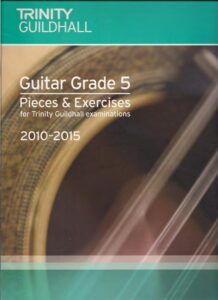 |
|
| Trinity Electronic Keyboard Grade 1 Pieces & Technical work |
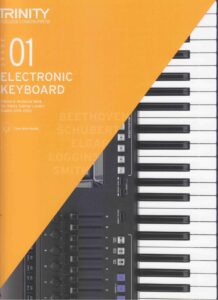 |
Trinity Electronic Keyboard Grade 1 |
| Trinity Electronic Keyboard Grade 2 Pieces & Technical work |
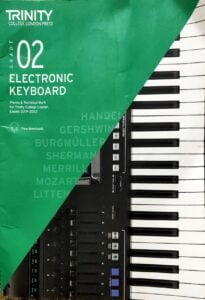 |
Trinity Electronic Keyboard Grade 2 |
| Trinity Electronic Keyboard Grade 6 Pieces & Technical work |
 |
Trinity Electronic Keyboard Grade 6 |
| Trinity Electronic Keyboard Grade 7 Pieces & Technical work |
 |
Trinity Electronic Keyboard Grade 7 |
| Trinity Electronic Keyboard Initial Grade 2019-2022 |
 |
|
| Trinity Electronic Keyboard Initial Pieces and Technical Work 2015-2018 |
 |
|
| Trinity Electronic Keyboard Sample Booklet |
 |
|
| Trinity Guitar 2016 2019 Grade 1 |
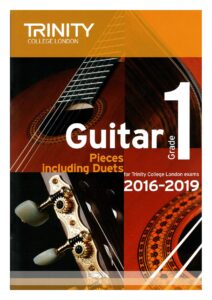 |
|
| Trinity Guitar 2016 2019 Grade 2 |
 |
|
| Trinity Guitar 2016 2019 Grade 3 |
 |
|
| Trinity Guitar 2016 2019 Grade 4 |
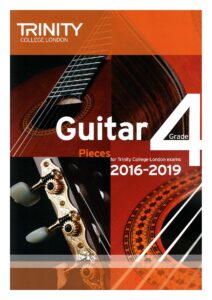 |
|
| Trinity Guitar 2016 2019 Grade 5 |
 |
|
| Trinity Guitar 2016 2019 Grade 6 |
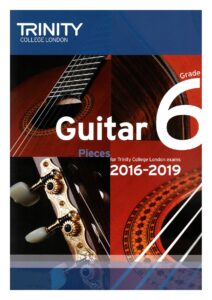 |
|
| Trinity Guitar 2016 2019 Grade 7 |
 |
|
| Trinity Guitar 2016 2019 Grade 8 |
 |
|
| Trinity Guitar 2016 2019 Initial |
 |
|
| Trinity Guitar Initial to Grade 5 Scales Arpeggios and studies |
 |
|
| Trinity Piano Grade 1 Pieces and exercises 2018 2020 |
 |
Trinity Piano Grade 1 Pieces and exercises 2018 2020 |
| Trinity Piano Grade 2 Pieces and exercises 2018 2020 |
 |
|
| Trinity Piano Grade 3 Pieces and exercises 2018 2020 |
 |
|
| Trinity Piano Grade 5 Pieces and exercises |
 |
|
| Trinity Piano Grade 6 (2021-2023) Extended Edition |
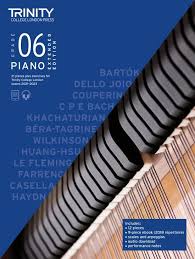 |
Trinity Piano Grade 6 (2021-2023) Extended Edition |
| Trinity Piano Grade 6 Pieces and exercises |
 |
|
| Trinity Piano Initial Piano 2018-2020 | Trinity Piano Initial Piano 2018-2020 | Trinity Piano Initial Piano 2018-2020 |
| Trinity Piano Pieces And Exercises Grade 1 2015 2017 |
 |
Trinity Piano Pieces And Exercises Grade 1 2015 2017 |
| Trinity Piano Pieces And Exercises Grade 2 2015 2017 |
 |
Trinity Piano Pieces And Exercises Grade 2 2015 2017 |
| Trinity Piano Pieces Grade 1 2021-2023 |
 |
Trinity Piano Pieces Grade 1 2021-2023 |
| Trinity Piano Pieces Grade 2 12 Piano Pieces 2021-2023 |
 |
Trinity Piano Pieces Grade 2 12 Piano Pieces 2021-2023 |
| Trinity Rock and Pop Guitar Grade 8 (Contemporary and classic songs) with Tablature |
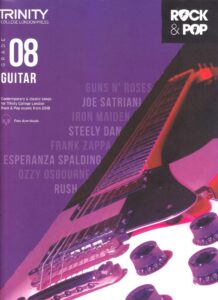 |
Trinity Rock and Pop Guitar Grade 8 (Contemporary and classic songs) |
| Trinity Sight Reading Book 1 Sound at sight Piano |
 |
|
| Trinity Theory Of Music Workbook Grade 1 |
 |
Trinity Theory Of Music Workbook Grade 1 |
| True Silent Hill-2- Akira-Yamaoka |
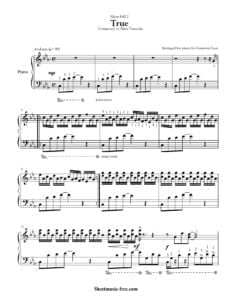 |
|
| Truman Show, The Reunion Philip Glass |
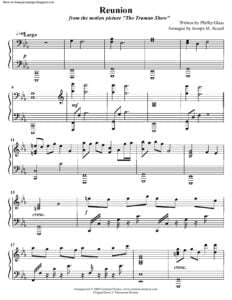 |
|
| Trumpet Method Allen Vizzutti Trumpet Method Book 1 2 3 Complete |
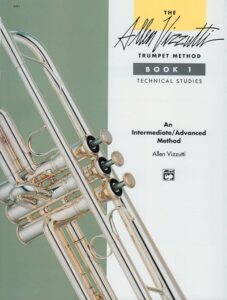 |
|
| Trumpet Method Anthony Plog Method For Trumpet Complete 7 books |
 |
|
| Trumpet Omnibook For B Flat Instruments Transcribed Exactly From Artist Recorded Solos |
 |
Trumpet Omnibook For B Flat Instruments Transcribed Exactly From Artist Recorded Solos |
| Trumpet Solos, Easy (The Canadian Brass) |
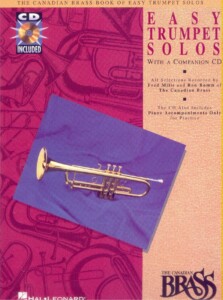 |
|
| Trumpet, The (John Wallace, Alexander McGrattan) Yale Musical Instruments Series (Book) |
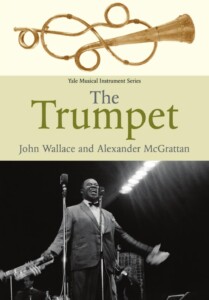 |
|
| Tsim Sha Tsui Stroll (Lust, Caution OST) Alexandre Desplat | ||
| Tu vuo’ fa’ l’Americano (Renato Carosone) | ||
| Tubular Bells (Mike Oldfield) |
 |
|
| Tubular Bells Intro – Mike Oldfield (Musescore File).mscz | ||
| Tuck Andress Europa by Carlos Santana guitar TABs |
 |
|
| Tuck Everlasting (The Musical) Music By Chris Miller Lyrics By Nathan Tysen (Piano Vocal Selections) |
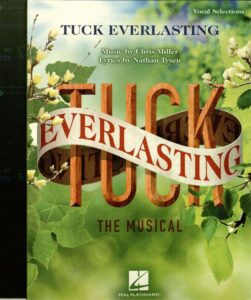 |
Tuck Everlasting (The Musical) Music By Chris Miller Lyrics By Nathan Tysen (Piano Vocal Selections) |
| Tunes For Ten Fingers A First Piano Book By Pauline Hall (Oxford) |
 |
|
| TV and Movie Themes (Piano, Vocal, Guitar) |
 |
TV and Movie Themes (Piano, Vocal, Guitar) |
| TV Detective Themes For Solo Piano |
 |
TV Detective Themes For Solo Piano |
| TV Fake Book, The |
 |
TV Fake Book, The |
| TV Songs Big Book Of TV Theme Songs 2nd Edition Piano Vocal Guitar |
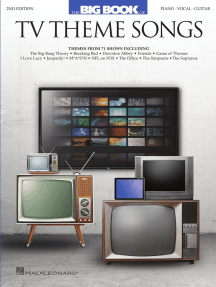 |
TV Songs Big Book Of TV Theme Songs 2nd Edition Piano Vocal Guitar Contents |
| Twelve Etudes Op 8 No 12 Scriabin (Musescore File).mscz | ||
| Twenty One Pilots – Goner |
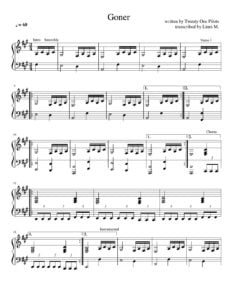 |
|
| Twenty One Pilots – Heathens – Piano |
 |
|
| Twenty One Pilots – Stressed Out Sheet Music | Twenty One Pilots – Stressed Out Sheet Music | |
| Twenty-Four Italian Songs And Arias Medium High |
 |
Twenty-Four Italian Songs And Arias, Medium High |
| Twice – Knock Knock Piano Solo |
 |
|
| Twilight – The Score – Carter Burwell |
 |
Twilight – The Score – CArter Burwell |
| Twilight saga – New Moon Music Score for Piano Solo Alexandre Desplat |
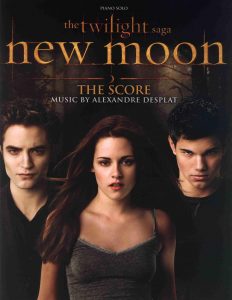 |
Twilight.New.Moon.Music.Score.for.Piano.Solo).Alexandre.Desplat |
| Twin Peaks – Audreys Dance Angelo Badalamenti | ||
| Twin Peaks – Laura Palmers Theme Angelo Badalamenti | ||
| Twin Peaks – Twin Peaks Theme Angelo Badalamenti | ||
| Twinkle Twinkle Little Star Variations Suzuki Guitar Vol. 1 (Musescore File).mscz | ||
| Two Socks theme (Dances with Wolves OST) John Barry | ||
| Two Steps From Hell Blackheart Piano Sheet Music by Thomas Bergersen |
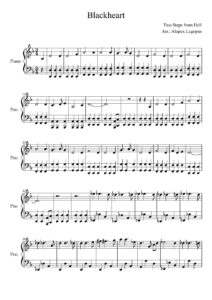 |
|
| Two Steps From Hell Flight Of The Silverbird (Piano Solo) Thomas Bergersen |
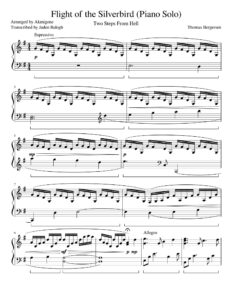 |
|
| Two Steps from Hell Invincible Sheet Music |
 |
|
| Two Steps From Hell Star Sky by Thomas Bergersen |
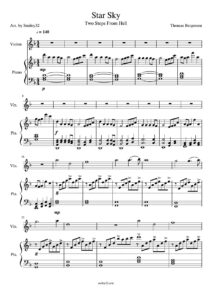 |
|
| Txarango – La Dansa Del Vestit En Fa M |
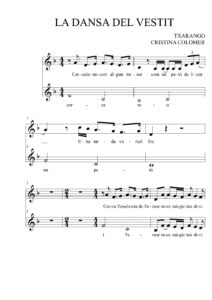 |
|
| Tymoczko, Prof. Dimitri MUSXI 105 Handouts 1 | Book Theory | |
| Tymoczko, Prof. Dimitri MUSIC 106 Handouts | Book Theory | |
| U2 The Piano Collection |
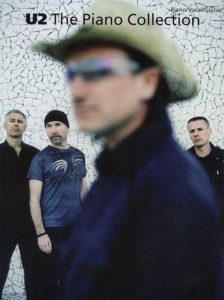 |
U2 The Piano Collection |
| U2 – All I Want Is U | ||
| U2 – Best Of – (Guitar Tab Songbook) |
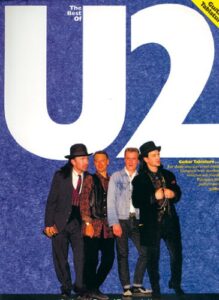 |
U2 – Best Of – (Guitar Tab Songbook) Contents — U2 – Best Of – (Guitar Tab Songbook) |
| U2 – How To Dismantle An Atomic Bomb (guitar tab songbook) |
 |
U2 – How To Dismantle An Atomic Bomb (guitar tab songbook) Contents — U2 – How To Dismantle An Atomic Bomb (guitar tab songbook) |
| U2 – October | ||
| U2 – Stuck In A Moment You Cant Get Out Of | ||
| U2 – The Best of 1990-2000 (Songbook) – U2 sheet music |
 |
U2 – The Best of 1990-2000 (Songbook) – U2 sheet music |
| U2 – The Best Of U2 (recorded versions) Guitar with TABs |
 |
U2 – Best Of – (Guitar Tab Songbook) |
| U2 – The Sweetest Thing | ||
| U2 Rock Score 5 Great Songs |
 |
|
| U2 The Joshua Tree Guitar Songbook with TABs |
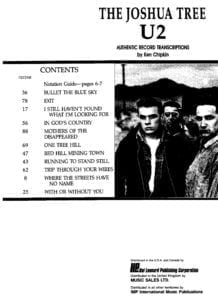 |
U2 The Joshua Tree Guitar Songbook |
| U2 WAR |
 |
U2 WAR |
| UB40 The Best Of – Piano, vocal & Guitar Songbook |
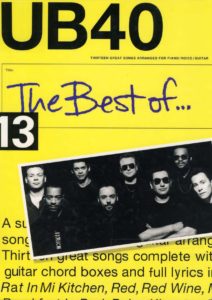 |
UB40 The Best Of – Piano, vocal & Guitar Songbook |
| Ubi Caritas – Ola Gjeilo (Musescore File).mscz | ||
| Ubi Caritas -Ola Gjeilo-with piano improvisation |
 |
|
| Ukelele Chord Finder – Easy to use Guide |
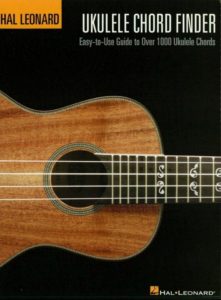 |
|
| Ukrainian folk song.mscz | ||
| Ukulele – 3-Chord Christmas Carols For Ukulele (Guitar Songbook Sheet Music) 30 Holiday Favorites With Just 3 Chords |
 |
Ukulele – 3-Chord Christmas Carols For Ukulele (Guitar Songbook Sheet Music) 30 Holiday Favorites With Just 3 Chords |
| Ukulele – Simple Songs For Ukulele (Guitar Sheet Music) |
 |
Ukulele – Simple Songs For Ukulele (Guitar Sheet Music) |
| Ukulele – The Daily Ukulele (Songbook) – Jim Beloff Guitar Sheet Music |
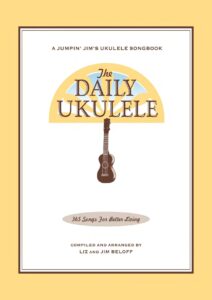 |
|
| Ukulele for Kids Songbook Ukulele Method |
 |
|
| Ultimate 80s Songs |
 |
Ultimate 80s Songs |
| Ultimate Guitar Chord-Book |
 |
|
| Ultimate Guitar Songbook with TABs |
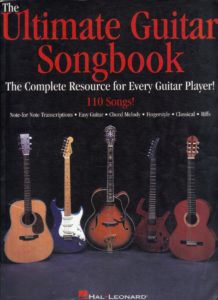 |
Ultimate Guitar Songbook, The (110 songs) |
| Ultimate Latin Piano Riffs – Carlos Campos & Andrew D.Gordon |
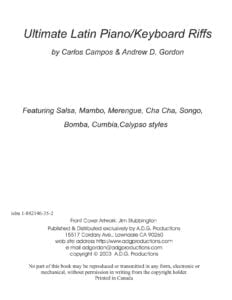 |
Ultimate Latin Piano Riffs – Carlos Campos & Andrew D.Gordon |
| Umberto Tozzi Gloria – Piano Vocal |
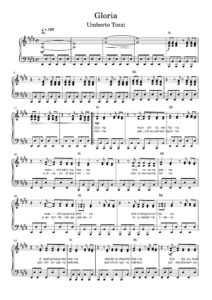 |
|
| Un air de liberté (Et maintenant on va où OST) Khaled Mouzanar | ||
| Un anno d’amore (Mina) | ||
| Un Homme et son Chien (Philippe Rombi) | ||
| Un Monstre À Paris La Seine And I By Vanessa Paradis & Sean Lennon (Piano Vocal) |
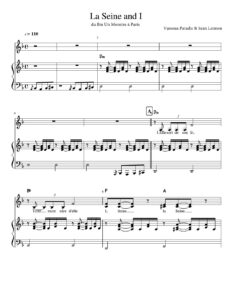 |
|
| Un Monstre à Paris – La Seine And I by Vanessa Paradis & Sean Lennon (Piano vocal).mscz | ||
| Una Mattina (Musescore File).mscz | ||
| Unchained Melody (Sheet Music) – The Righteous Brothers |
 |
|
| Under The Sea Ukulele Guitar From The Little Mermaid |
 |
|
| Under The Sea – Ukulele Guitar.mscz | ||
| Understanding chord progressions for Guitar by Arnie Berle |
 |
Understanding chord progressions for Guitar |
| Understanding The Fundamentals Of Classical Music Course Guide Modern Scholar (Book) |
 |
|
| Undertale Full OST – Toby Fox |
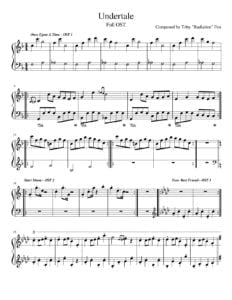 |
|
| Undertale Megalovania Piano – Toby Fox |
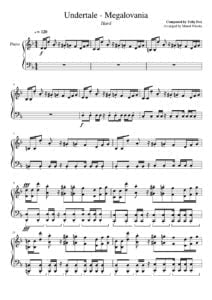 |
|
| Undertale – Home |
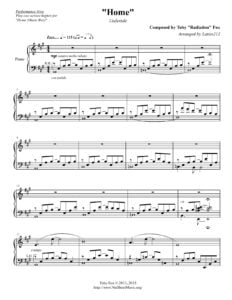 |
|
| Undertale – Megalovania | ||
| Undertale OST – Hopes and Dreams Save the World |
 |
|
| UNDERTALE OST – Hopes and Dreams Save the World Piano Solo.mscz | ||
| Undertale OST – Hopes and DreamsSave the World.mscz | ||
| Undertale Ost – Nyeh Heh Heh! Bonetrousle |
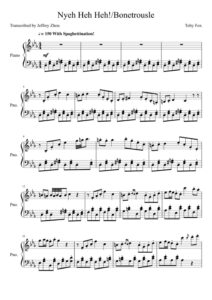 |
|
| Une Heure de Plus (Erik Berchot) | ||
| Unfaithful (Rihanna) | ||
| Unfinished Music – Richard Kramer |
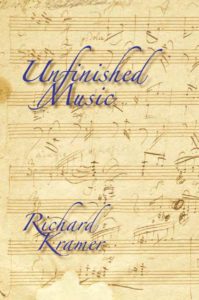 |
|
| Unforgettable – Irving Gordon (Nat King Cole Song) (Musescore File).mscz |
Jazz: Keith Jarrett – The Art of Improvisation. Exclusive Interviews with Keith Jarrett, Gary Peacock and Jack Dejohnette.
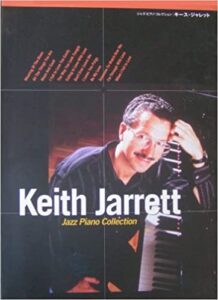
Keith Jarrett’s sheet music transcriptions are available from our Library.
Keith Jarrett: The Art of Improvisation
While he can often engender all manner of contention and argument, it’s unquestionable that Keith Jarrett is one of the most significant pianists to emerge in the second half of the 20th Century.
An artist who has done it all — performed his own sometimes lyrical, sometimes free-spirited compositions with two groundbreaking quartets in the ’70s; taken solo improvisation to a whole new level with a series of important recordings, including the classics Facing You and The Köln Concert.
Contributed a fresh spontaneity to the Great American Songbook with his Standards Trio; tackled the challenging classical repertoires of Bach, Mozart and Shostakovich and composed his own classical works; and played in landmark groups including Charles Lloyd in the ’60s and Miles Davis in the ’70s — Jarrett is also more than a little enigmatic.
Fastidious, perfectionist and, some might argue, highly controlled in his life, Jarrett paradoxically defines the concept of pure abandon in his playing.
With a life’s work that, classical repertoire aside, has always been about spontaneous creation, Jarrett is in an especially capable position to shed light on the true meaning of improvisation.
And so, British producer/director Mike Dibb, responsible for ’02’s The Miles Davis Story, has fashioned a new documentary which, while never explicitly defining what that elusive meaning is, nevertheless manages — after 85 minutes and a series of remarkably erudite interviews with Jarrett and those who have been close to him over the past 30 years — to create a vivid impression that is both inspirational to aspiring musicians and uniquely clarifying to others who want to understand the process of how musicians create something out of nothing.
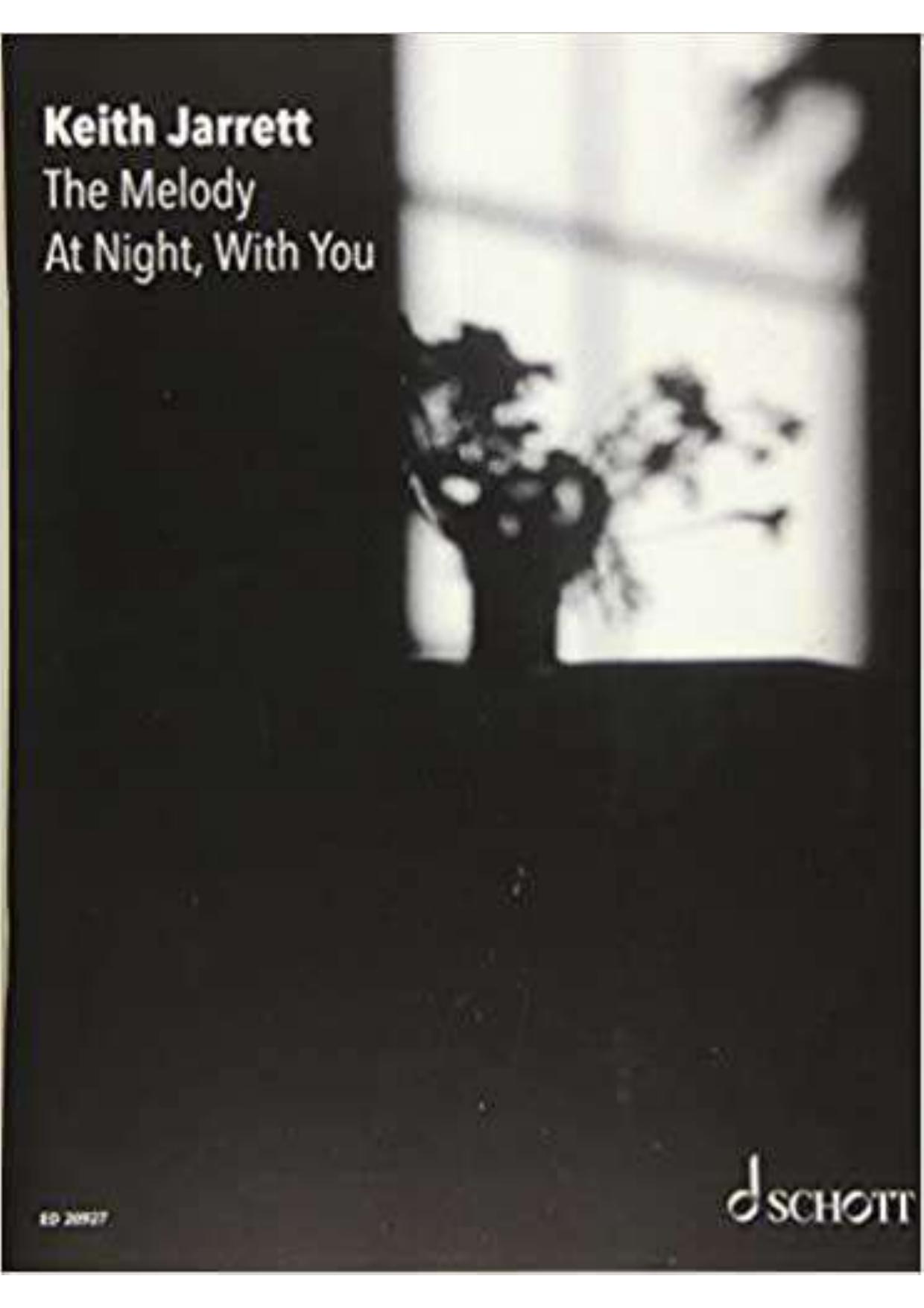
Rather than present a chronological examination of Jarrett’s life thus far, Dibb chooses, much like Jarrett’s own work, to use a seemingly non-linear approach that focuses on Jarrett’s improvisational process although, in the final analysis — just like Jarrett’s extemporization — there is an arc.
Beginning with the Standards Trio, then jumping back to his early days and ultimately ending with his European Quartet including saxophonist Jan Garbarek, bassist Palle Danielsson and drummer Jon Christensen, what becomes evident is that Jarrett’s goal has essentially been the same as when, precociously, he would add both his own original compositions and spontaneous creations to the classical repertoire of recitals dating back as early as when he was only eight years old.
Amongst the many interviews with past and present collaborators including Garbarek, Danielsson, Christensen, Charlie Haden, Gary Peacock, Jack DeJohnette, Chick Corea, Gary Burton and Dewey Redman, perhaps the most significant footage is that with ECM label owner and producer Manfred Eicher, with whom Jarrett found the perfect creative partner early in his career.
Keith Jarrett goes as far as saying that his albums are the product of two people — himself and Eicher — which is a significant distinction.
That Eicher has recorded far more Jarrett performances than have ever been or will ever be released in order to catch those moments of pure magic, those performances where Jarrett alone or with a group is truly at the moment, also demonstrates the high standard and level of discernment that both he and Jarrett apply to deciding what will ultimately be commercially distributed.
That Jarrett has, for 20 years, chosen only to document live performances, rather than record in the studio, is another distinction, one that points to a belief that the audience is, indeed, an integral part of each and every performance.
Jarrett comes across as deeply committed, albeit unquestionably idiosyncratic and unapologetically purist; while he admits to enjoying his time with Miles Davis — the only time in his career where he totally gave up acoustic piano for electric instruments — he also dismisses his electric work by calling such instruments “toys.
Few, if any, pianists other than Jarrett insist that a choice of pianos be provided for each performance, so that he can choose the best one for the concert hall. And the sheer physicality of his playing, along with his total and absolute involvement with the music to the exclusion of anything else, paints a unique picture — as does his level of communication.
Virtually all concert footage — including performances with Lloyd, Miles, the Standards Trio, and the American and European Quartets — demonstrates the incredible interaction that exists at every performance.
Jarrett has, in recent years, come under criticism with regard to the Standards Trio which, at over 20 years, is the longest-lasting group of his career — and, with rare exception, is one of the longest collaborations in the jazz period. Some say that the group has lost its creative edge.
But watching the footage of the trio, and listening to Jarrett, Peacock and DeJohnette discuss how little rehearsal takes place — in fact, rehearsals typically only occur in sound checks before concerts, and it’s not uncommon for the trio to work on something at a sound check and never actually play it in concert — one is truly drawn into the sense of adventure applied to every performance.
And the performance footage, in concert with the interview clips, manages to demonstrate the kinds of risks the trio take with each and every tune; how any one of the members can suggest a new direction with complete confidence that the others will follow.
By the time Dibb’s documentary reaches its end, one may not be able to explicitly define the art of improvisation, but there are profound conclusions implicitly reached. And the documentary compels one to either play some Jarrett recordings or, if Jarrett’s music is new to the viewer, to go out and find some.
The level of excitement and discovery is so vivid that even those who have become jaded with Jarrett in recent times may find themselves with renewed interest. While some bemoan Jarrett’s abandonment of writing, what becomes clear — and Jarrett articulates this at one point — is that every performance involves the act of composition. And that, perhaps more than anything, is the true meaning of improvisation.
